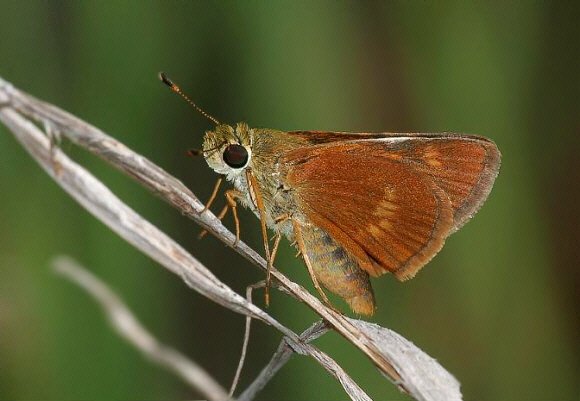
Introduction
The genus Wallengrenia comprises of 7 species, of which two – otho and egeremet, occur in North America. The other species are premnas from South America; misera from Cuba and the northern Bahamas; drury from the southern Bahamas, Hispaniola and Puerto Rico; vesuria from Jamaica, and ophites from Trinidad and the Lesser Antilles.
W. otho and egeremet are very similar in appearance and can only reliably be distinguished from each other by dissecting and microscopically examining the male genitalia. Generally however the underside wings of otho tend to be reddish-brown or orange-brown in colour, whereas egeremet has a more neutral brown hue.
Wallengria otho is found in the south-eastern states of the USA. It’s range overlaps with the more northern species egeremet.
Habitats
This species is found in open woodland habitats and swamps, at altitudes between sea level and about 200m.
Lifecycle
The larvae feed nocturnally on grasses including Digitaria and Paspalum.
Adult behaviour
Both sexes visit flowers for nectar. Males however are more commonly seen imbibing moisture from mud. They perch on low vegetation on forest edge habitats, using these places as vantage points from which to survey and intercept passing females.
